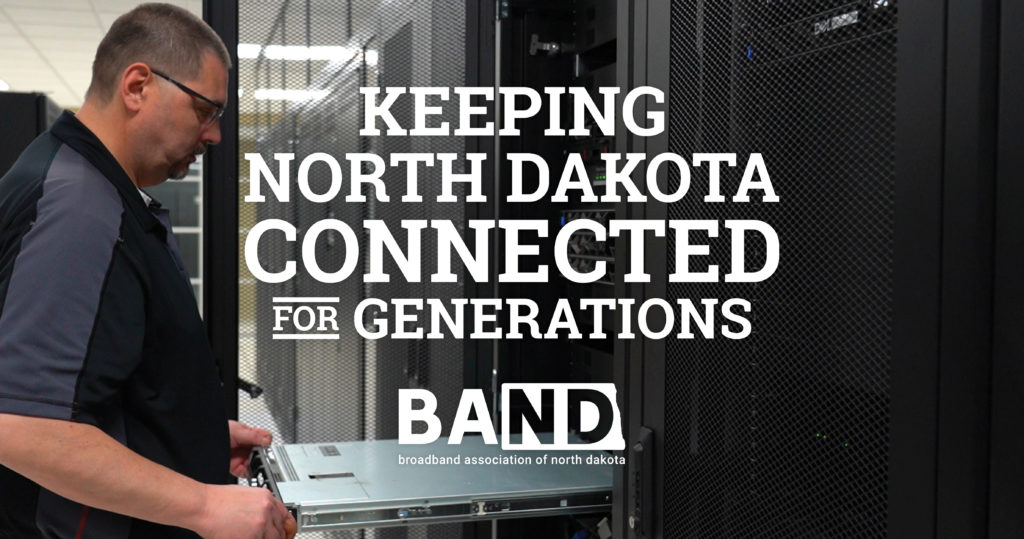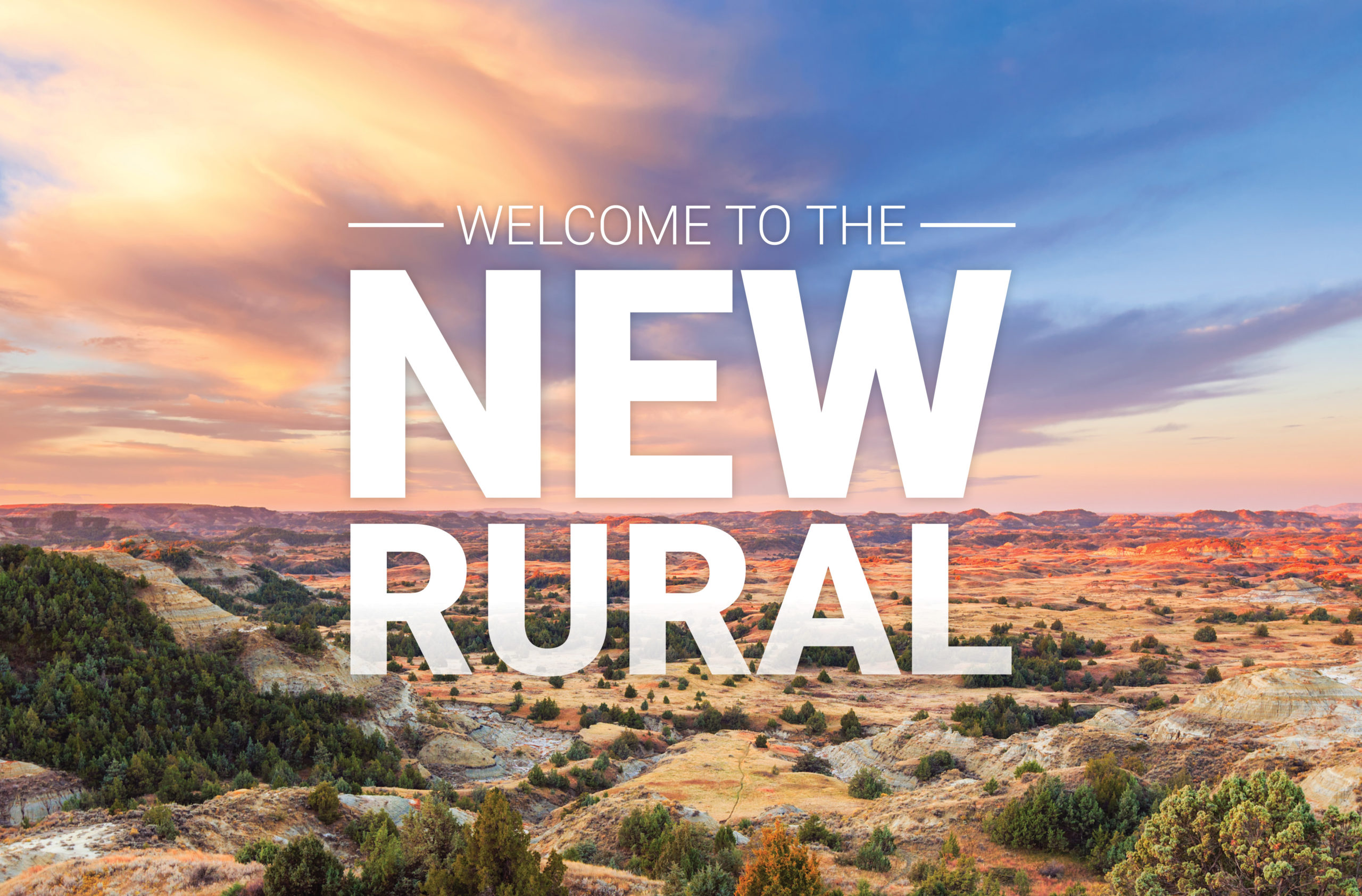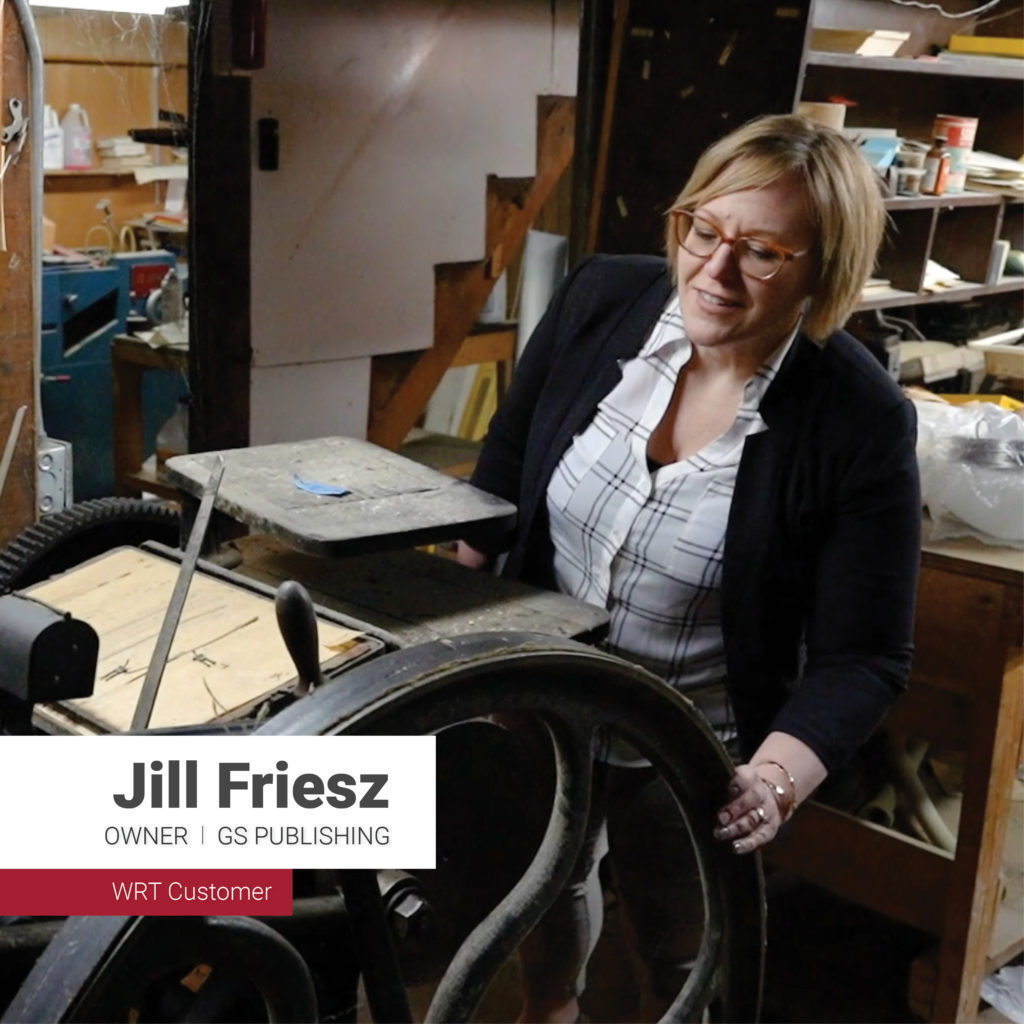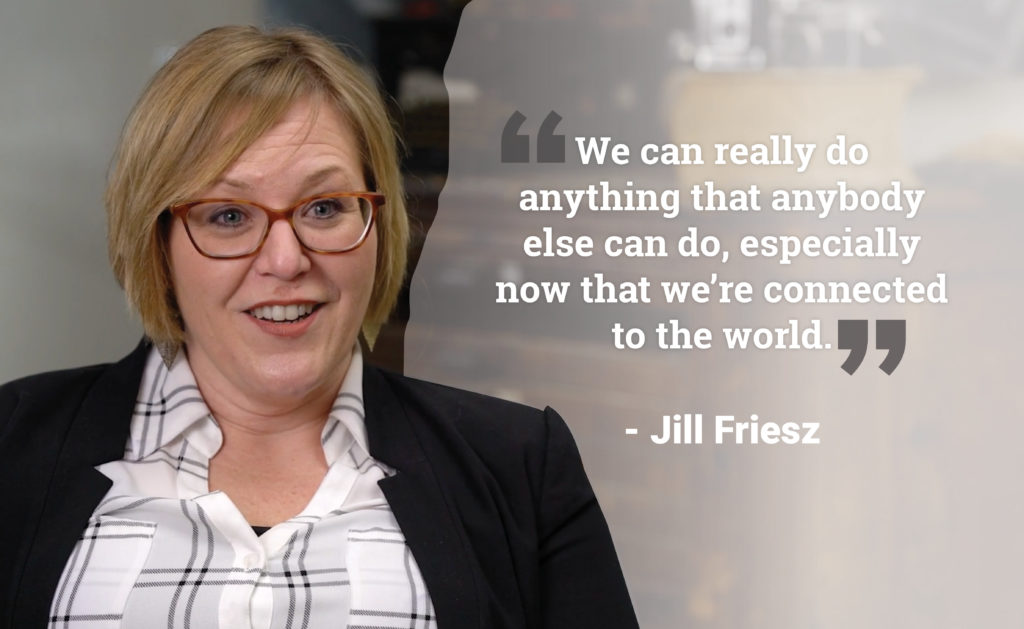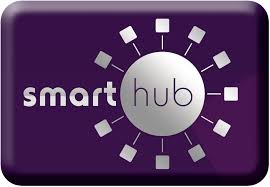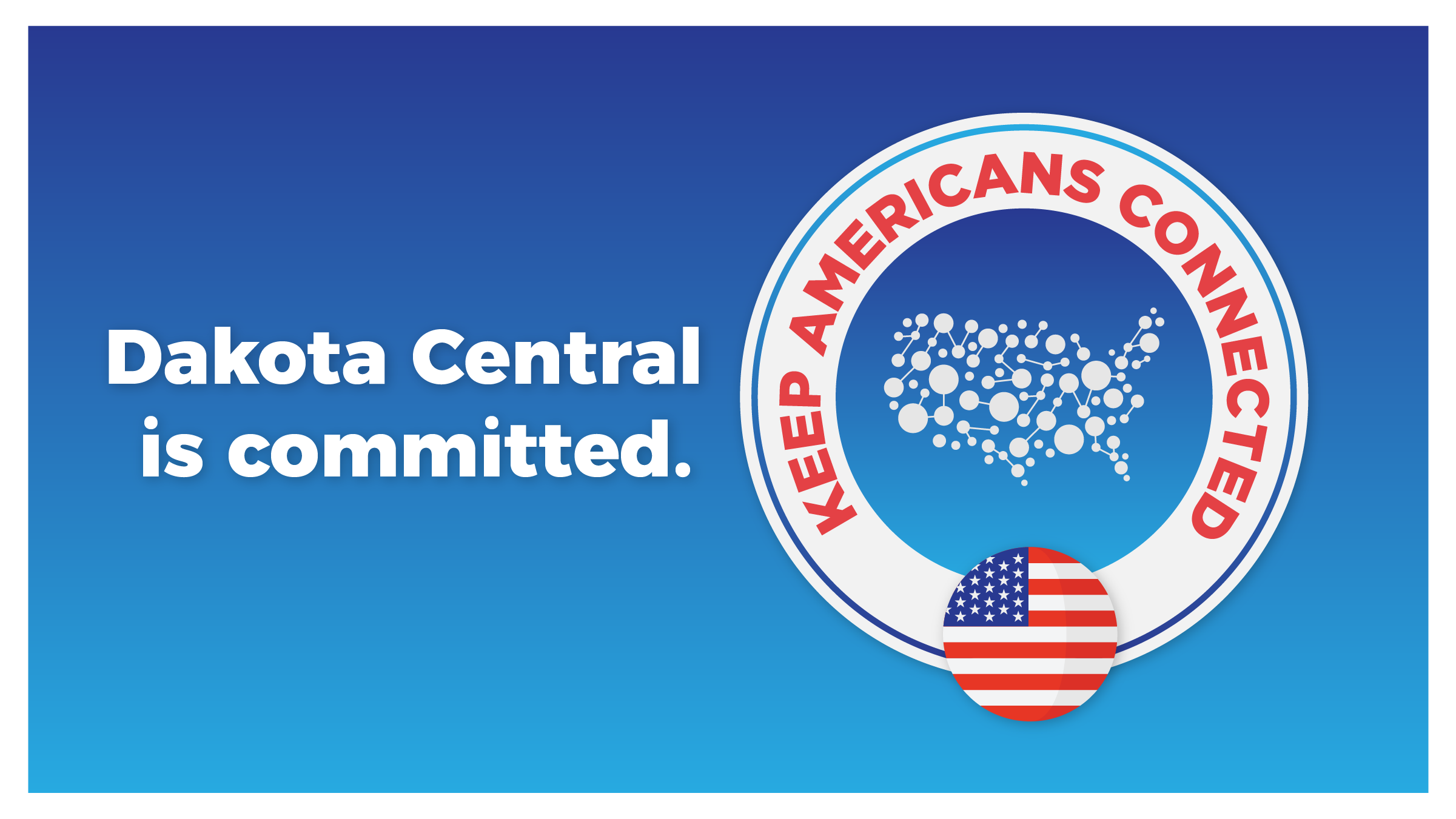How BAND and DCN guaranteed broadband access for 99.8 percent of North Dakota students during the pandemic.
It was still early in the COVID-19 pandemic when Governor Doug Burgum and Superintendent of Public Instruction Kirsten Baesler called the first press conference.
As of that Friday, March 13th, North Dakota only had one confirmed case of the novel coronavirus. Baesler and Burgum announced that schools would remain open, and provided administrators with guidelines to make the best decisions for their individual districts.
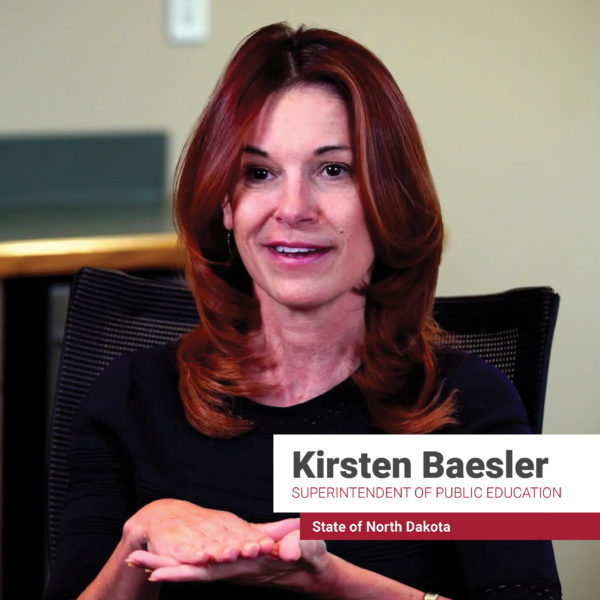 But the situation progressed dramatically over the weekend, and on Sunday, Governor Burgum ordered schools to close for the week. Teaching staff entered their schools for what would be the last time of the year to plan for remote learning—just in case. And on Thursday afternoon, the Executive Order was made: all North Dakota school buildings would be closed to students, indefinitely.
But the situation progressed dramatically over the weekend, and on Sunday, Governor Burgum ordered schools to close for the week. Teaching staff entered their schools for what would be the last time of the year to plan for remote learning—just in case. And on Thursday afternoon, the Executive Order was made: all North Dakota school buildings would be closed to students, indefinitely.
“Thus began the saga of, how do we ensure that our students don’t stop learning just because our school buildings are closed?” said Superintendent Baesler.
The Executive Order issued by Governor Burgum that day included a stipulation that in order for schools to receive funding, they must submit a distance learning plan to be approved by the Department of Public Instruction.
“In those plans, we saw a heavy emphasis on technology—not only the platforms of communication between teachers and students, but also the delivery of actual learning mechanisms of math, reading, and writing lessons,” Superintendent Baesler said. “And that led us to be a little bit concerned about whether our students were going to be connected, whether they would have access to that technology.”
In March 2020, school districts across the country were faced with the same question. Teachers scrambled to make plans to continue providing meaningful instruction for the remainder of the school year. News reports showed images of students gathered, six feet apart, in their schools’ parking lots just so they could access the Internet to complete their assignments.
But amidst the chaos, one unexpected state was able to transition to distance learning almost seamlessly. More than 99 percent of North Dakota students, over 120,000, were connected to the internet in a matter of days—all thanks to a spirit of collaboration, an investment in broadband infrastructure, and the legendary North Dakota work ethic.
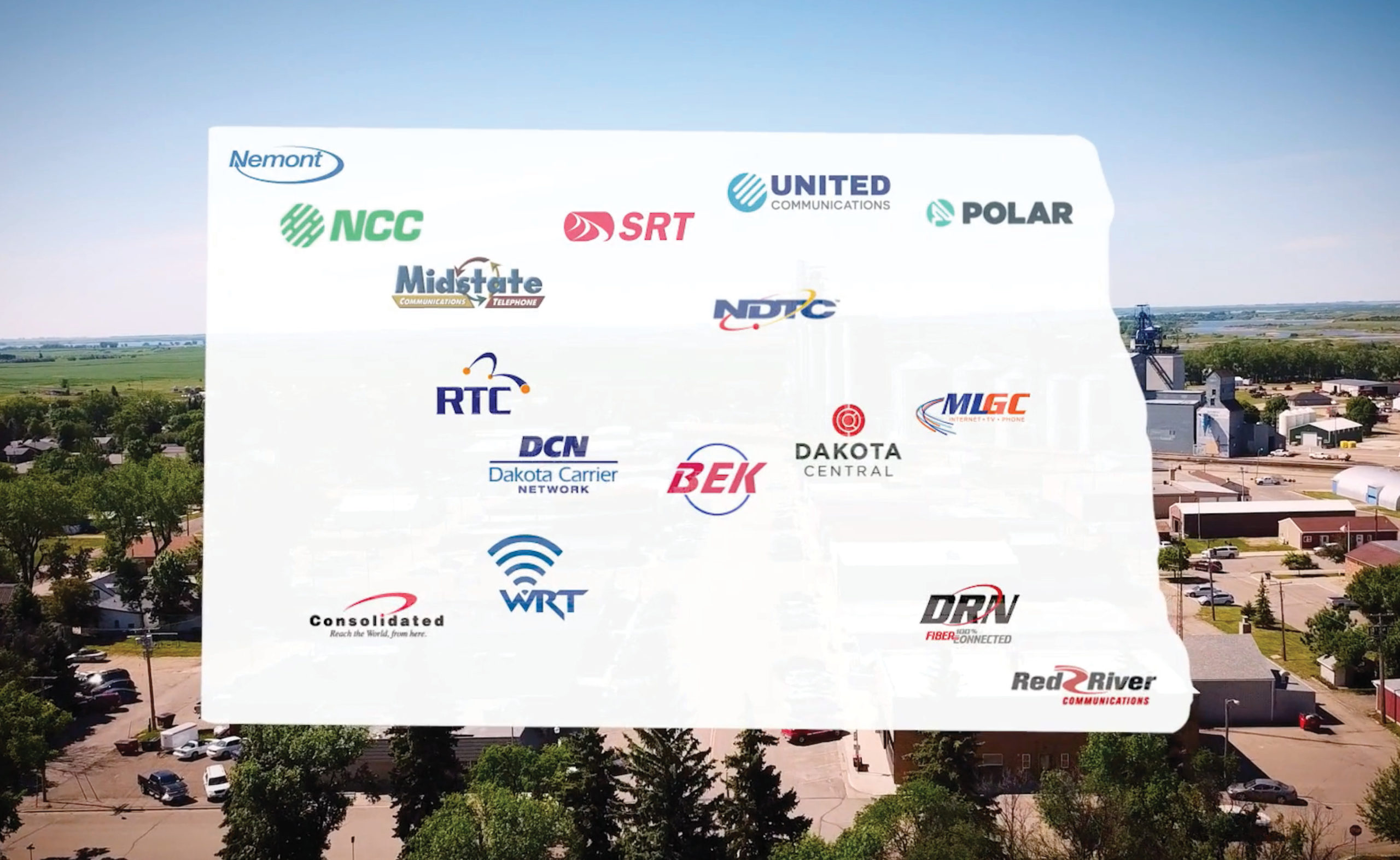
Staying Safe by Staying Connected
For 21st century students, access to the Internet isn’t just a luxury—it’s a necessity. Today’s teachers rely on high-speed broadband connections to communicate with students, deliver assessments, and most importantly, help students become informed global citizens. Tools like virtual field trips and online pen-pal assignments keep students connected to their increasingly globalized world.
“It is absolutely essential for our students to have broadband access because the world is so big right now and they are so connected to it,” Superintendent Baesler said. “They can’t take a field trip to China, or to the oil fields of Saudi Arabia, but things happening in those countries are impacting their daily lives. So it’s important that they learn about them as they become global citizens, and that is only possible through the Internet.”
The Internet became even more critical for schools during the COVID-19 pandemic. Suddenly, it was teachers’ only form of communication with students. And because social distancing plays such a vital role in preventing the spread of the virus, it also became a means of keeping teachers, students, and their families safe.
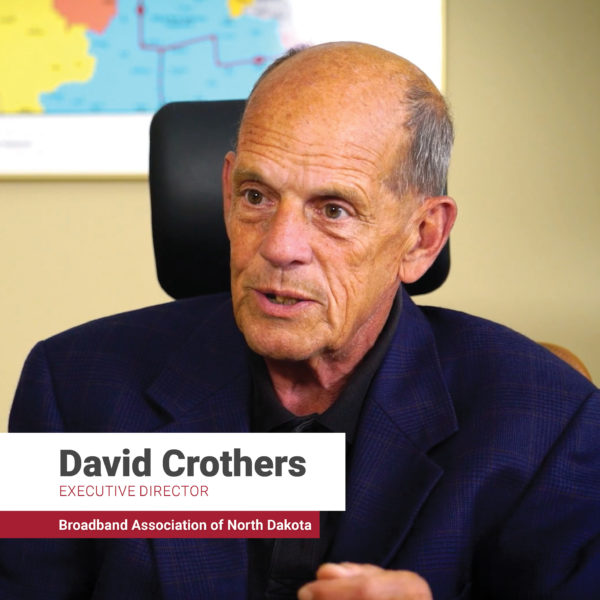 In order to ensure that all North Dakota students could participate in online school during the pandemic, districts first needed to understand where the need for Internet access lay. Working with local broadband providers and the North Dakota Information Technology department, Baesler’s team learned that student addresses were not protected information and could therefore be used to determine whether or not they had access to broadband. By overlaying student addresses with broadband customer addresses, they learned that a majority of students, approximately 70 percent, already had robust broadband access within their homes.
In order to ensure that all North Dakota students could participate in online school during the pandemic, districts first needed to understand where the need for Internet access lay. Working with local broadband providers and the North Dakota Information Technology department, Baesler’s team learned that student addresses were not protected information and could therefore be used to determine whether or not they had access to broadband. By overlaying student addresses with broadband customer addresses, they learned that a majority of students, approximately 70 percent, already had robust broadband access within their homes.
Next, it was a matter of delivering broadband to that last 30 percent—and quickly. Realizing the importance of keeping students connected during the pandemic, the 15 rural broadband providers that form the Broadband Association of North Dakota (BAND) went to work immediately.
“Virtually all of the areas had fiber running by those home addresses,” said David Crothers, Executive Director of BAND. “It was just a matter of getting the equipment in the door and hooked up for those students in unconnected homes. So we were able to do that very, very quickly. And that’s how we ended up with over 2,100 students online who otherwise wouldn’t have been able to participate in their education.”
Almost 25 years ago, the member companies that form BAND joined together to create the Dakota Carrier Network (DCN) in order to invest in a fiber backbone that spans the entire state. Those companies knew that they could get farther together, and so far, they have laid more than 42,000 miles of fiber across the state of North Dakota.
Because of that existing fiber infrastructure, a process that normally would have taken months was completed in just days. When the pandemic hit, North Dakota schools did not need to build a new system to get broadband to students; instead, they were able to dedicate their energy to deploying a system that was already in place.
“We had that infrastructure, that symbiotic relationship before COVID-19 ever hit. And so we were able to join up as one and funnel all this traffic onto that network,” Crothers said. “We were fully prepared to go, but that’s a debt of gratitude that we owe to the directors and management of these local companies that were doing it a quarter of a century ago. And it’s worked out just perfectly for us and the people in North Dakota.”
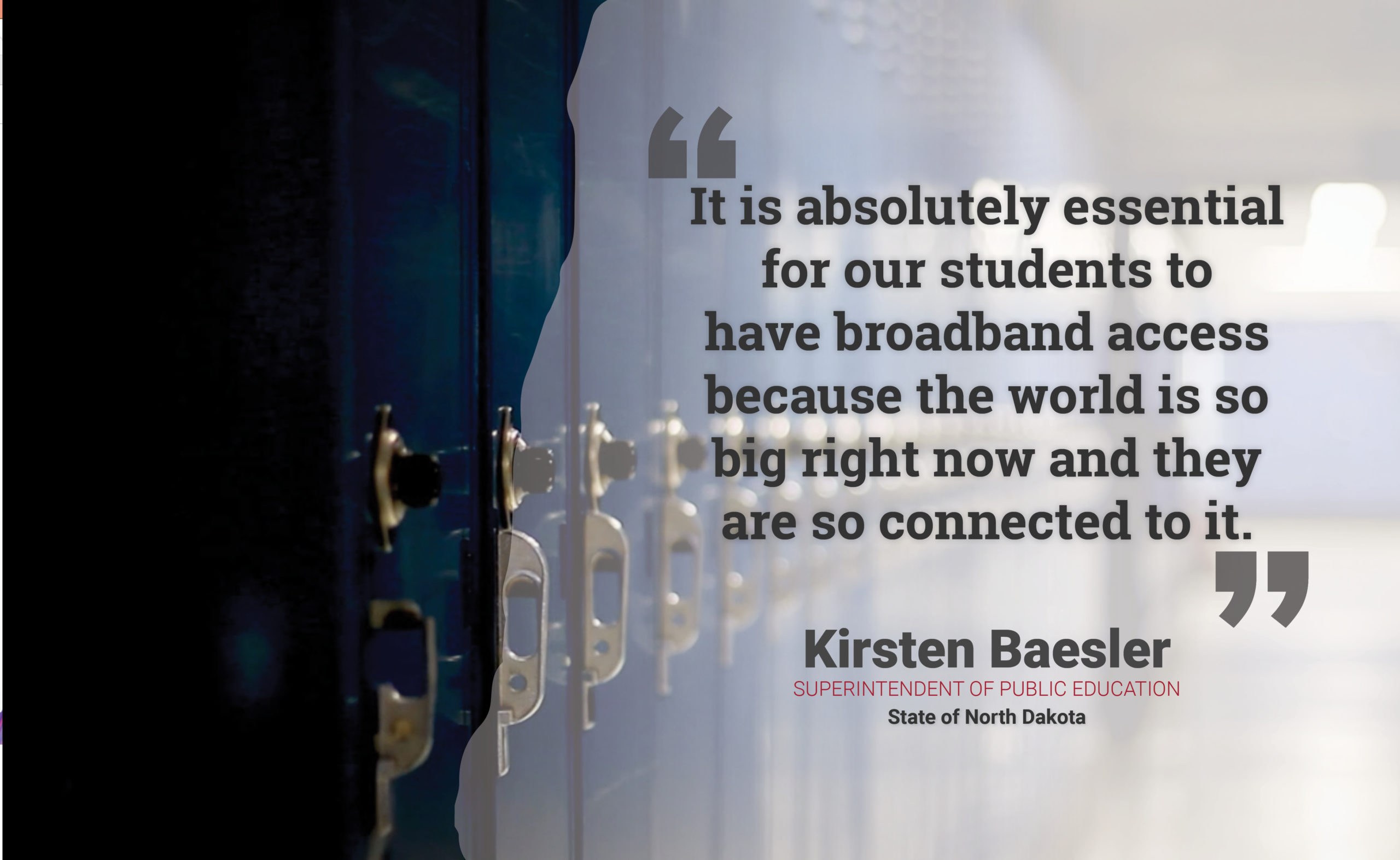
A Heritage of Innovation
In just three weeks, 99.8 percent of students in territories served by BAND member companies were connected to the Internet and able to continue with their school year—a number virtually unheard of across the country.
When colleagues from around the country ask Superintendent Baesler how North Dakota managed to connect so many students, so quickly, she looks back to our state’s heritage. When pioneers first settled in North Dakota, living few and far between, they needed electricity to survive. They didn’t wait for a large electrical company from across the country to provide them with electricity; they banded together, formed cooperatives, and did it for themselves. The same can be said for telephone lines, and today, broadband.
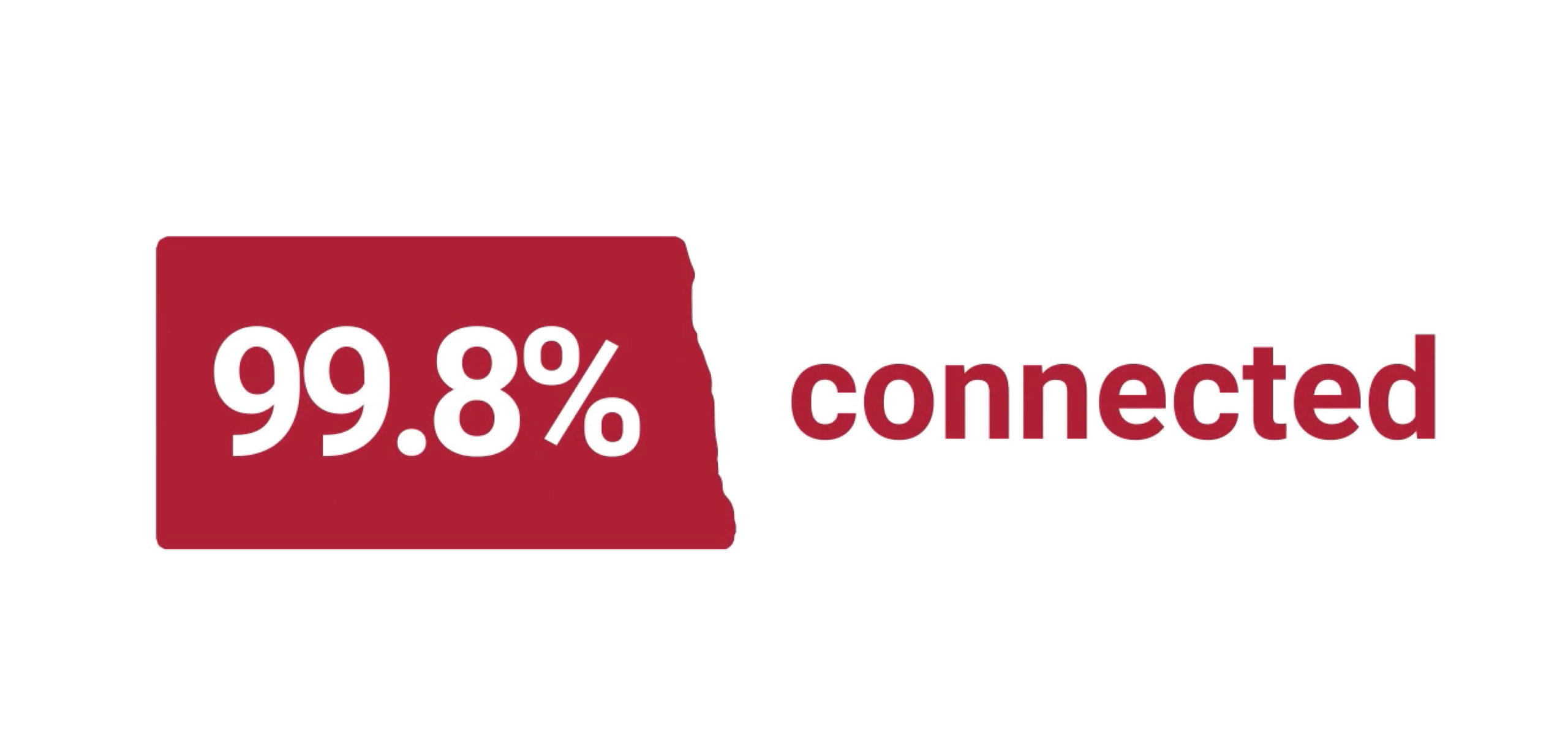
“They brought that communication to our farmers and ranchers across the state. I think that is the heritage that has brought us to 99.8 connectivity,” Superintendent Baesler said. “That’s the partnership that we have with BAND and their member companies. They don’t wait around for someone else to solve problems for their customers, for their members. And for most importantly, they solve that problem before the problem even really gets bad.”
By working together and drawing on this pioneering spirit of North Dakotans past, the 15 member companies that form the Broadband Association of North Dakota, Dakota Carrier Network, and school districts across the state set an example of the possibilities of distance learning. Most importantly, they proved that no student should fall behind in school due to lack of Internet access—even in the midst of a pandemic.
“COVID-19 has created a dramatic illustration of the importance of having a reliable, affordable, excellent broadband connection, anywhere that you live in the state of North Dakota,” Crothers said. “It’s really brought to bear how important a functional state-of-the-art broadband network is, not just for those who can afford it, not just for those in the largest cities, but to every resident.”
Discover how your local BAND member can support you throughout COVID-19 and beyond: www.broadbandnd.com/our-members/association-members/
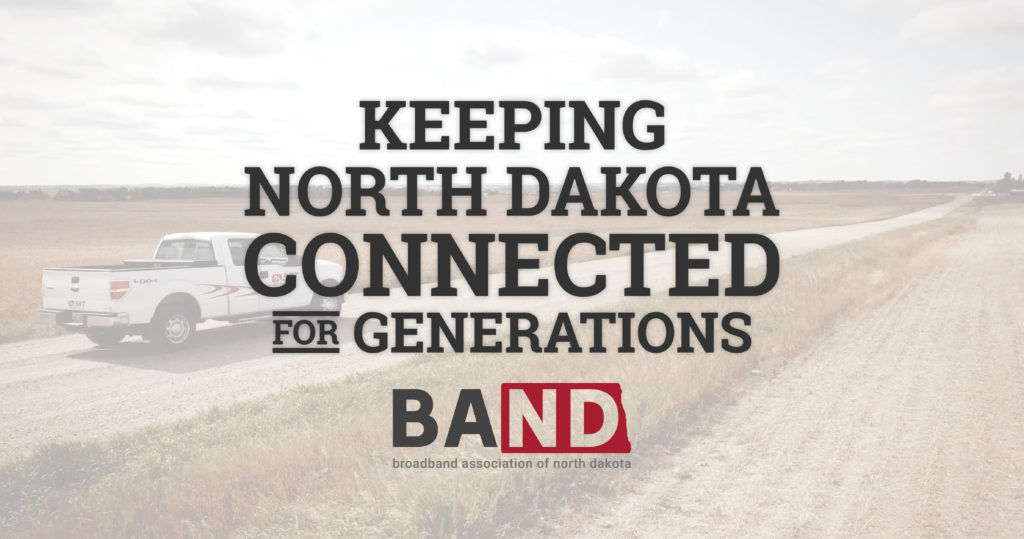
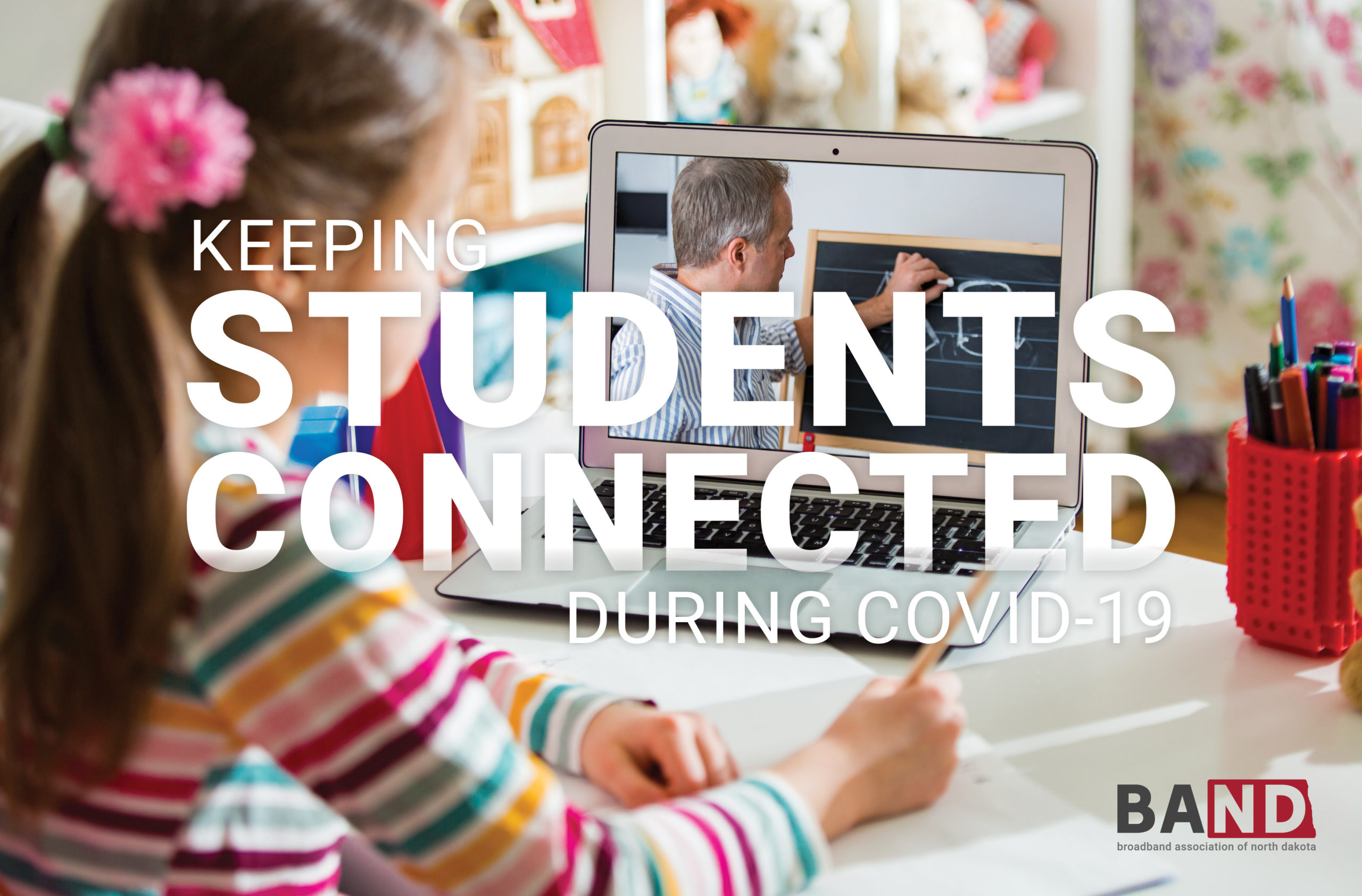

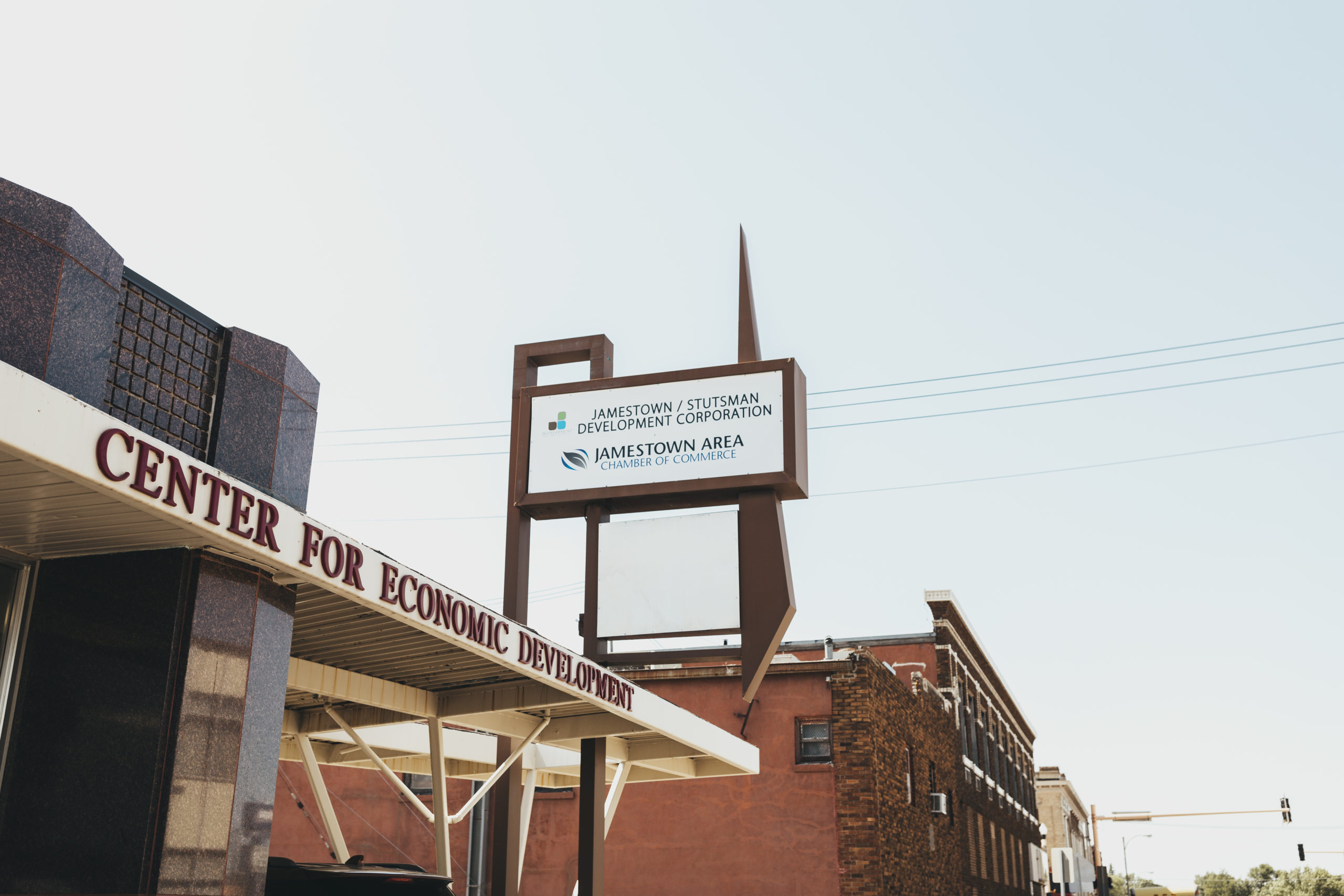

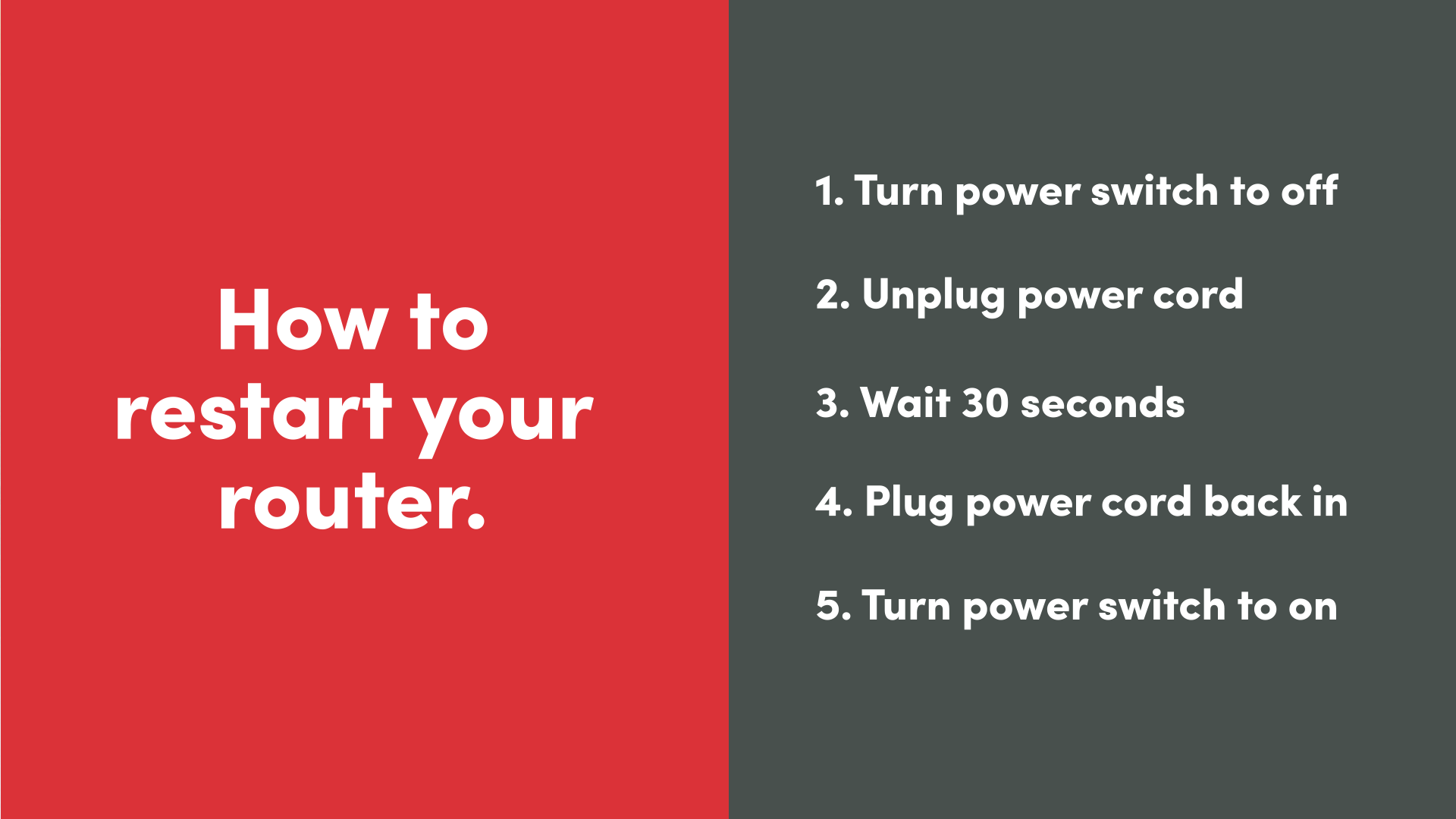
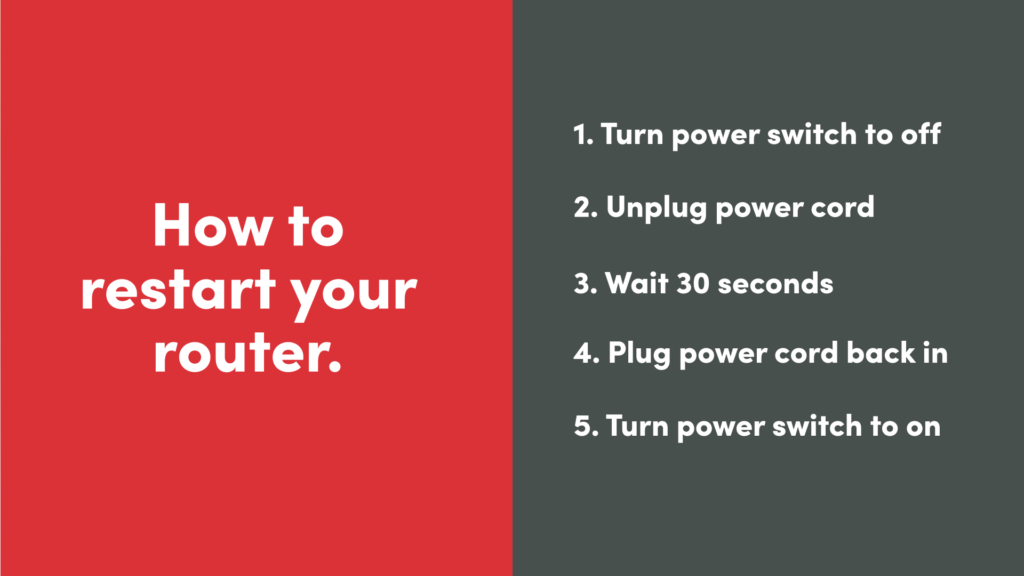

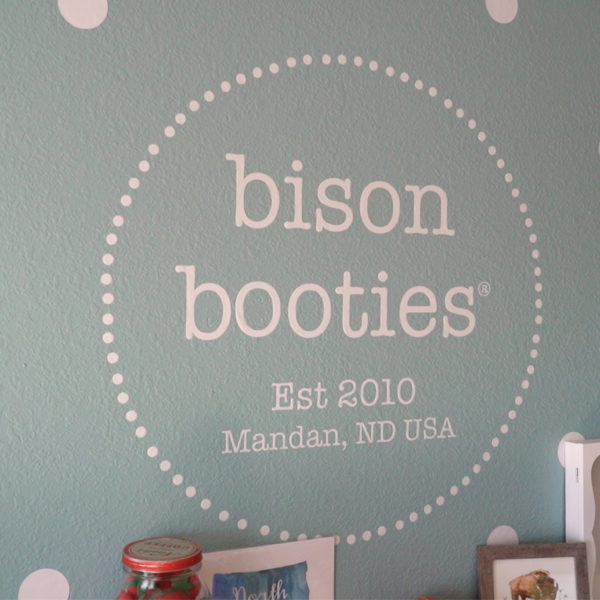 what Erica Hager calls a “happy accident.” In October 2010, the longtime hobby quilter was experiencing the universal struggle of new parents: nothing would stay on her squirmy baby’s feet. With the chill of an impending North Dakota winter on the wind, Erica set her sewing machine and a box of scrap fabric on a folding table in her unfinished basement and got to work. After a few failed attempts, the first pair of Bison Booties—soft-soled baby shoes that stay on even the kickiest feet—was born.
what Erica Hager calls a “happy accident.” In October 2010, the longtime hobby quilter was experiencing the universal struggle of new parents: nothing would stay on her squirmy baby’s feet. With the chill of an impending North Dakota winter on the wind, Erica set her sewing machine and a box of scrap fabric on a folding table in her unfinished basement and got to work. After a few failed attempts, the first pair of Bison Booties—soft-soled baby shoes that stay on even the kickiest feet—was born.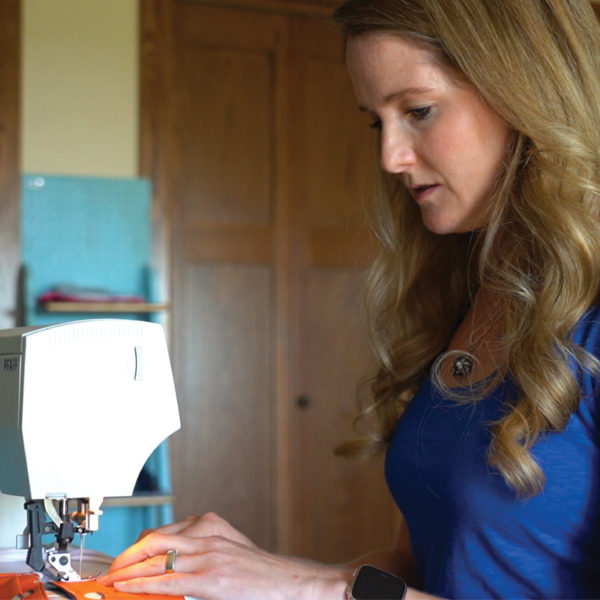 “Bison Booties has been able to keep our family and our community safe, and we wouldn’t be able to do it without the high-speed service that we have from BEK,” Erica said. “If I had any doubt in my mind that the Internet might not work tomorrow, or it might not be fast enough for me to upload these photos [of my products], it would have slowed that system so greatly. I don’t know that it would have been worth it to make them.”
“Bison Booties has been able to keep our family and our community safe, and we wouldn’t be able to do it without the high-speed service that we have from BEK,” Erica said. “If I had any doubt in my mind that the Internet might not work tomorrow, or it might not be fast enough for me to upload these photos [of my products], it would have slowed that system so greatly. I don’t know that it would have been worth it to make them.”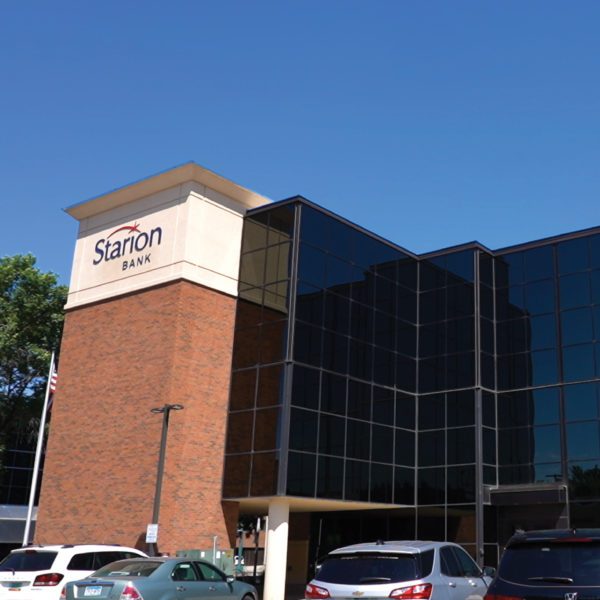 impacts COVID might have on our business, and within the next week or so we started making decisions on closing branches, sending people home to work,” said Kevin Valleroy, IT Manager and VP at Starion Bank. “And one of the things that we recognized is that, with the number of people working from home, we could potentially need some more internet bandwidth.”
impacts COVID might have on our business, and within the next week or so we started making decisions on closing branches, sending people home to work,” said Kevin Valleroy, IT Manager and VP at Starion Bank. “And one of the things that we recognized is that, with the number of people working from home, we could potentially need some more internet bandwidth.” 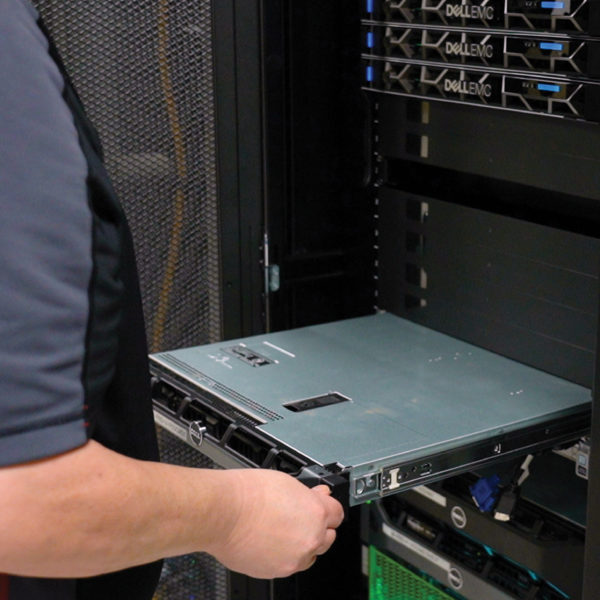 “At DCN, our main priority is keeping our customers connected,” said Seth Arndorfer, CEO of DCN. “During COVID-19. that connection has been more important than ever before.”
“At DCN, our main priority is keeping our customers connected,” said Seth Arndorfer, CEO of DCN. “During COVID-19. that connection has been more important than ever before.”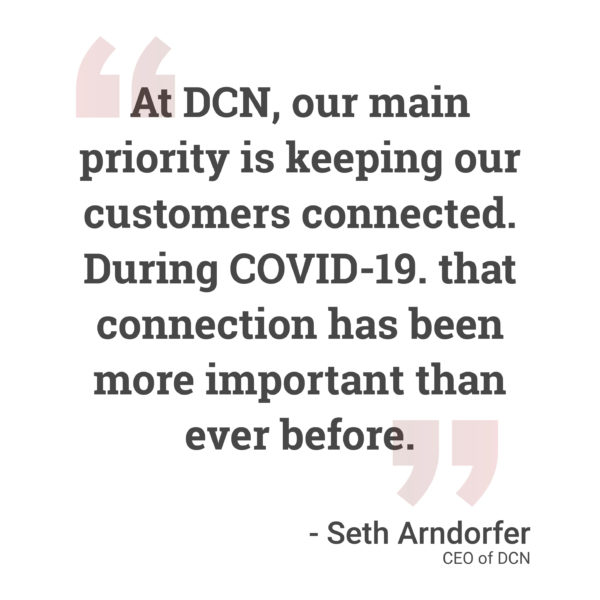 has created unprecedented demand for broadband across our state, the 18 member organizations that form BAND have all stepped up in unprecedented ways to support their customers.
has created unprecedented demand for broadband across our state, the 18 member organizations that form BAND have all stepped up in unprecedented ways to support their customers. 